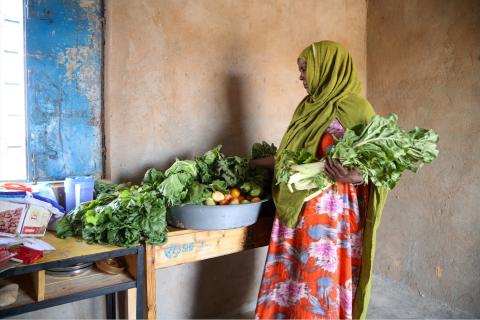State of school feeding worldwide 2022
This is a summary of the following report: World Food Programme (2023) State of School Feeding Worldwide 2022. https://www.wfp.org/publications/state-school-feeding-worldwide-2022
In 2022, two years after the onset of the COVID-19 pandemic, the World Food Programme assessed the global state of school feeding. This assessment utilised national surveys to examine key aspects of health and nutrition coverage and implementation practices in schools. The report analysed changes between 2020 and 2022 – with the final report being published in March 2023.
The pandemic highlighted the need for governments worldwide to invest in the education and general well-being of their children and teenagers, as well as the necessity of developing national policies that guarantee both a good education and high-quality health and nutrition services provided in schools.
In 2022, data from 176 countries indicated that approximately 418 million children benefited from school feeding programmes globally, a slight increase from 388 million in 2020. However, low-income countries (LICs) experienced a 4% reduction in the number of children receiving school meals.
Around 41% of children enrolled in primary school benefit from school meal programmes globally. The coverage varies greatly with income level: approximately 18% of schoolchildren in LICs receive free or subsidised school meals, compared to 39% in lower-middle-income countries and 48% in upper-middle-income countries.
Financial landscape analysis found that external donor support for investing in the well-being of children and adolescents does not respond to the priority that national governments give to these programmes. Despite limited fiscal resources, LICs increased their domestic funding for school meals (from approximately 30% in 2020 to 45% in 2022), while donor support decreased (from around USD 267 million in 2020 to USD 214 million in 2022).
The report indicates that governments were increasingly recognising the importance of formalising school meal programmes into institutional policy and connecting them with other health and nutrition initiatives. In 2022, 82% of LICs had a school meals policy (compared to 73% in 2020) and, overall, more than 87% of all countries had specific school feeding policies in place (compared to 79% in 2020).
The ‘School Meals Coalition’, a collaborative effort, has gained prominence and involves 76 countries representing diverse economic levels (and 58% of the world's population). It has helped restore programmes to pre-pandemic levels, especially in low- and middle-income countries. The Coalition, through partner-led initiatives, aims to address three key challenges: improving evidence for decision-making, ensuring sustainable financing, and enhancing data reliability.
The primary challenge at present lies in the limited effectiveness of recovery efforts, especially in LICs where coverage is inadequate despite being most needed. Addressing this challenge necessitates a new agreement that adapts to the shift toward increased country ownership and funding to augment support for school meal programmes.
Moreover, there exists an opportunity to harness the school meal platform to promote climate-smart and sustainable food systems, ultimately leading to improved nutrition and greater dietary diversity. Climate-smart school meal programmes could serve as pioneers in countries' efforts to enhance climate resilience – fostering diversified diets, aligning agriculture and procurement with local food sovereignty, and rethinking energy and farming practices.


